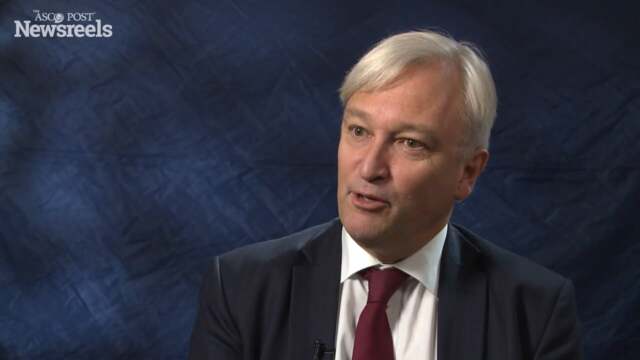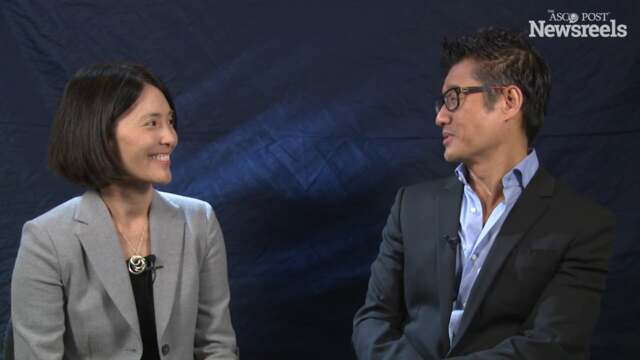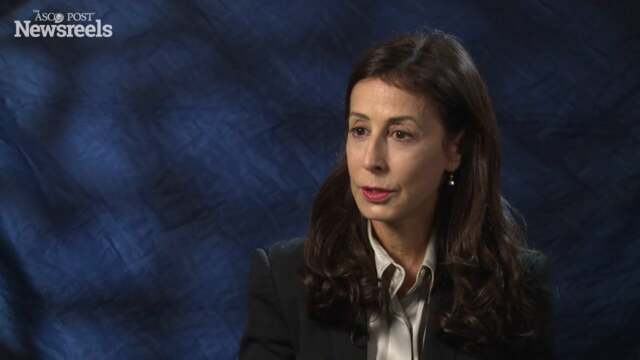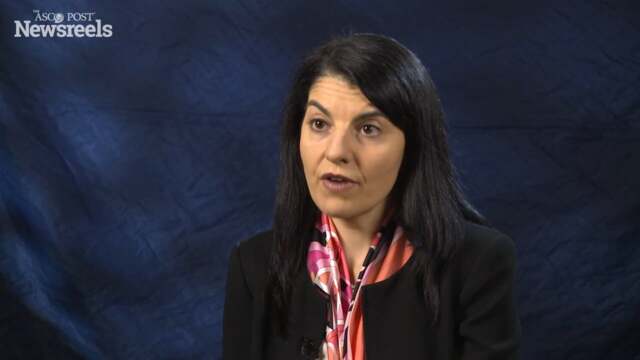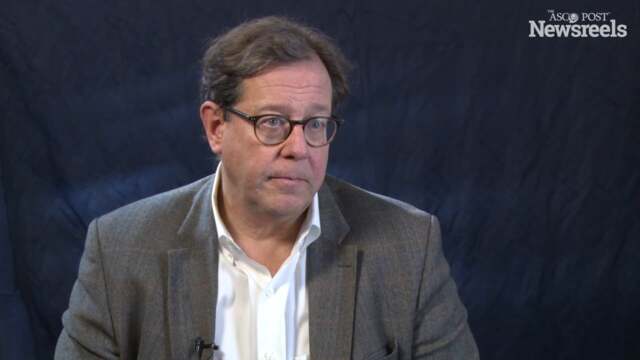Michel Ducreux, MD, PhD, on Results of the Phase II COLO 001 Clinical Trial
2015 European Cancer Congress
Michel Ducreux, MD, PhD, of the Institut Gustave Roussy, discusses the efficacy and safety in this study of nab-paclitaxel in patients with previously treated metastatic colorectal cancer (Abstract 2131).
Peter L. J. Naredi, MD, PhD
Incoming ECCO President, Peter L. J. Naredi, MD, PhD, of the University of Gothenburg, discusses his upcoming year as the new ECCO President, his vision for the organization, and his views on cancer treatment today.
Tony Mok, MD, and Alice Shaw, MD, PhD
Tony Mok, MD, of The Chinese University of Hong Kong, and Alice Shaw, MD, PhD, of Massachusetts General Hospital, discuss the current status and future outlook of ALK inhibition, and an assessment of brigatinib CNS activity in patients with ALK-positive non-small cell lung cancer and intracranial metastases (Abstract 3061).
Cora N. Sternberg, MD
Cora N. Sternberg, MD, of San Camillo Forlanini Hospital, summarizes a teaching lecture on new targets in renal cell carcinoma, and discusses what to expect for the future of treating RCC.
M. Catherine Pietanza, MD
M. Catherine Pietanza, MD, of Memorial Sloan Kettering Cancer Center, discusses rovalpituzumab tesirine, a promising DLL3-targeted antibody drug conjugate, the first precision treatment for small cell lung cancer (Abstract 7LBA).
A. Oliver Sartor, MD
A. Oliver Sartor, MD, of Tulane University School of Medicine, discusses the latest results of a clinical trial on radium-223 dichloride and the improvement in overall survival of men with advanced prostate cancer (Abstracts 2510, 2530).
